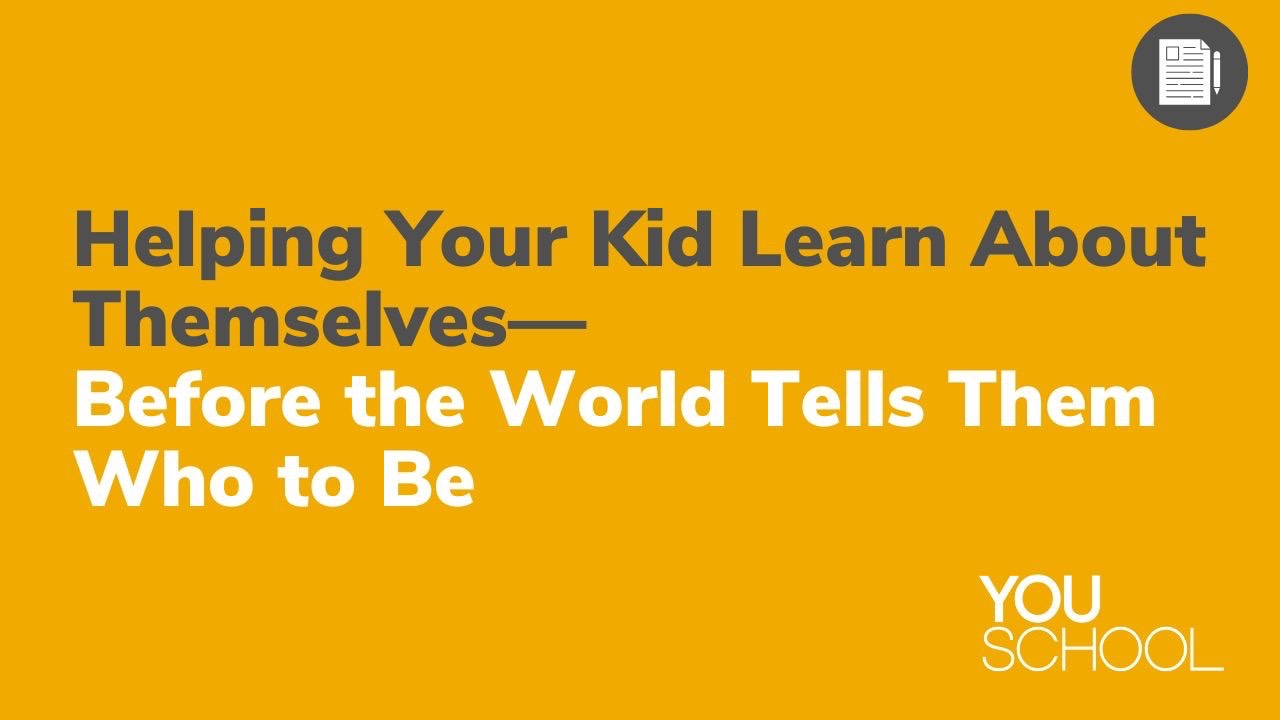Helping Your Kid Learn About Themselves—Before the World Tells Them Who to Be

Your kid is in the most important phase of their life for identity formation—and the scariest part? If they don’t figure out who they are, the world will decide for them.
Adolescence isn’t just about raging hormones and awkward moments—it’s about answering the question: Who am I? The problem is, most kids don’t even realize they’re supposed to be asking that question. If they don’t take ownership of their identity, social media, peer pressure, or other outside influences will step in and answer for them.
The Cost of Getting It Wrong
Picture a high school senior who’s done everything “right.” Straight-A student, pre-med track, a resume packed with extracurriculars. Everyone assumes they’ll be successful. But a year into college, they burn out. They realize they never actually wanted any of it—it was all about meeting expectations. Now, they feel lost, unmotivated, and stuck.
This is what happens when kids don’t develop self-concordance—the ability to pursue goals that align with their authentic self. Without it, they end up chasing paths that lead to burnout, frustration, or an identity crisis later in life.
Why These Years Matter So Much
The adolescent brain is literally wired for identity formation. This is when kids naturally experiment, explore, and try to make sense of who they are. But if they don’t have intentional guidance, they might struggle to develop a clear sense of self.
Many adults are still wrestling with this because they never had the space to explore their identity when it mattered most. Instead, they followed the path of least resistance—doing what was expected rather than what truly fit them. If parents don’t step in to help, kids may just adopt the identity that feels easiest: whatever their peers, social media, or the school system tell them they should be.
How Parents Can Help Their Kid Discover Who They Are
1. Help Them Reflect on Their Experiences
Instead of asking, “Did you have fun?” after an activity, try: “What did you learn about yourself?” This small shift teaches kids to connect their experiences to their identity.
2. Encourage New Challenges & Experiences
Don’t just sign them up for what you think they’ll like—push them to explore different activities. If they love sports, encourage them to try an art class. If they’re always indoors, suggest a hiking trip. The goal isn’t to force them into something, but to help them explore different aspects of themselves.
3. Model Your Own Self-Discovery
Your kid is watching you. Talk about the things you’re still learning about yourself. “I used to think I hated public speaking, but I’ve realized I actually love it when I’m passionate about the topic.”
4. Normalize Change & Growth
Their identity isn’t set in stone. It’s okay for them to change their mind, try something new, or step away from something that no longer fits. Encourage them to embrace that evolution.
The Bottom Line
The adolescent years are a one-time opportunity for identity formation. If your kid doesn’t figure out who they are, the world will tell them who to be. But you have the power to guide them.
Start small: Tonight, ask your kid one simple question—“What’s something you’ve learned about yourself this week?”Then, just listen.
